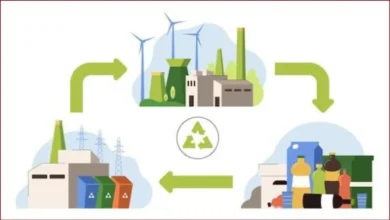Pros and Cons of Buying a Used Car in Different States

From varying state laws and regulations to transportation logistics, each state offers distinct pros and cons for buyers. This article explores the advantages and challenges of buying a used car across state lines, providing insights to help buyers make informed decisions. Understanding the regional differences can help buyers avoid potential pitfalls and find the best deals.
Pros of Buying a Used Car in Different States
There are many pros to buying pre-owned vehicles, as listed below.
Access to More Options
One of the biggest advantages of buying a used car in a different state is the increased variety of vehicles. Limiting your search to a local area may restrict you to a smaller pool of options. For example, buying a used Chevrolet in Philadelphia can be a great option. Expanding your search beyond state borders allows you to find the exact make, model, and year you desire. It also increases your chances of locating rare or specific vehicles that may not be available in your home state.
Better Pricing
Pricing can vary significantly by state due to regional market conditions, economic factors, and demand. Some states may have lower average used car prices, allowing you to get a better deal. For instance, cars in rural or less densely populated states may cost less due to lower demand compared to more urban areas where prices tend to be higher. You could save hundreds or even thousands of dollars by shopping across state lines.
Lower Sales Tax
Sales tax rates on vehicles differ from state to state, which can be an advantage when purchasing a used car out of state. Some states have lower vehicle sales taxes or no sales tax at all. Buying a used car from a state with lower tax rates could significantly reduce the total cost of the vehicle.
Potential for a Vehicle in Better Condition
Weather conditions and climate play a significant role in the wear and tear a car experiences. For instance, cars in northern states with harsh winters might be more prone to rust, whereas cars from southern or desert states, like Arizona, may have less rust due to the dry climate. By searching for a used car in a state with favorable weather conditions, you may find a vehicle that has been preserved better over time.
Unique Models
Certain car models or trim levels may be more popular in specific states due to local trends, climates, or geographic needs. For example, trucks or SUVs may be more common in states with rough terrains, while hybrid and electric vehicles may be prevalent in eco-conscious states. Buying from out of state can increase your chances of finding these specific models that might not be as readily available locally.
Cons of Buying a Used Car in Different States
Despite numerous pros, there can be some cons to buying used vehicles in different states.
Transportation and Logistics
Purchasing a car from another state often requires arranging transportation, whether driving it back yourself or paying for a shipping service. These costs can add up and negate some of the potential savings from finding a lower-priced car. Additionally, dealing with the logistics of transportation can take time and effort.
Compliance with State-Specific Regulations
Each state has laws and regulations regarding vehicle registration, emissions standards, and safety inspections. Some states have stricter emission standards, such as California, where the state’s regulations can be difficult and costly to meet. If you buy a used car from a state with more lenient standards, you may face additional expenses to bring the vehicle into compliance with your home state’s laws.
Inspection and Verification Challenges
When buying a used car locally, you have the opportunity to physically inspect the vehicle, take it for a test drive, and have a trusted mechanic assess its condition. When buying out of state, verifying the car’s condition becomes more challenging before purchasing. While third-party inspection services exist, they may not provide the same confidence level as seeing the car firsthand.
Taxation and Registration Fees
While some states have lower sales taxes, you will likely have to pay your home state’s tax when registering the vehicle. Additionally, registration fees can differ significantly between states, and you may face unexpected costs when transferring the title and registering the car in your home state. Understanding these financial obligations beforehand is crucial to avoid any surprises.
Bottom Line
Buying a used car in a different state has many advantages and challenges. On the one hand, you can access a wider selection of vehicles, potentially find better deals, and avoid local market constraints. On the other hand, logistical hurdles, differing state regulations, and the risk of scams add complexity to the process. While the potential savings and benefits can be significant, being prepared and cautious will help you make a sound decision.



